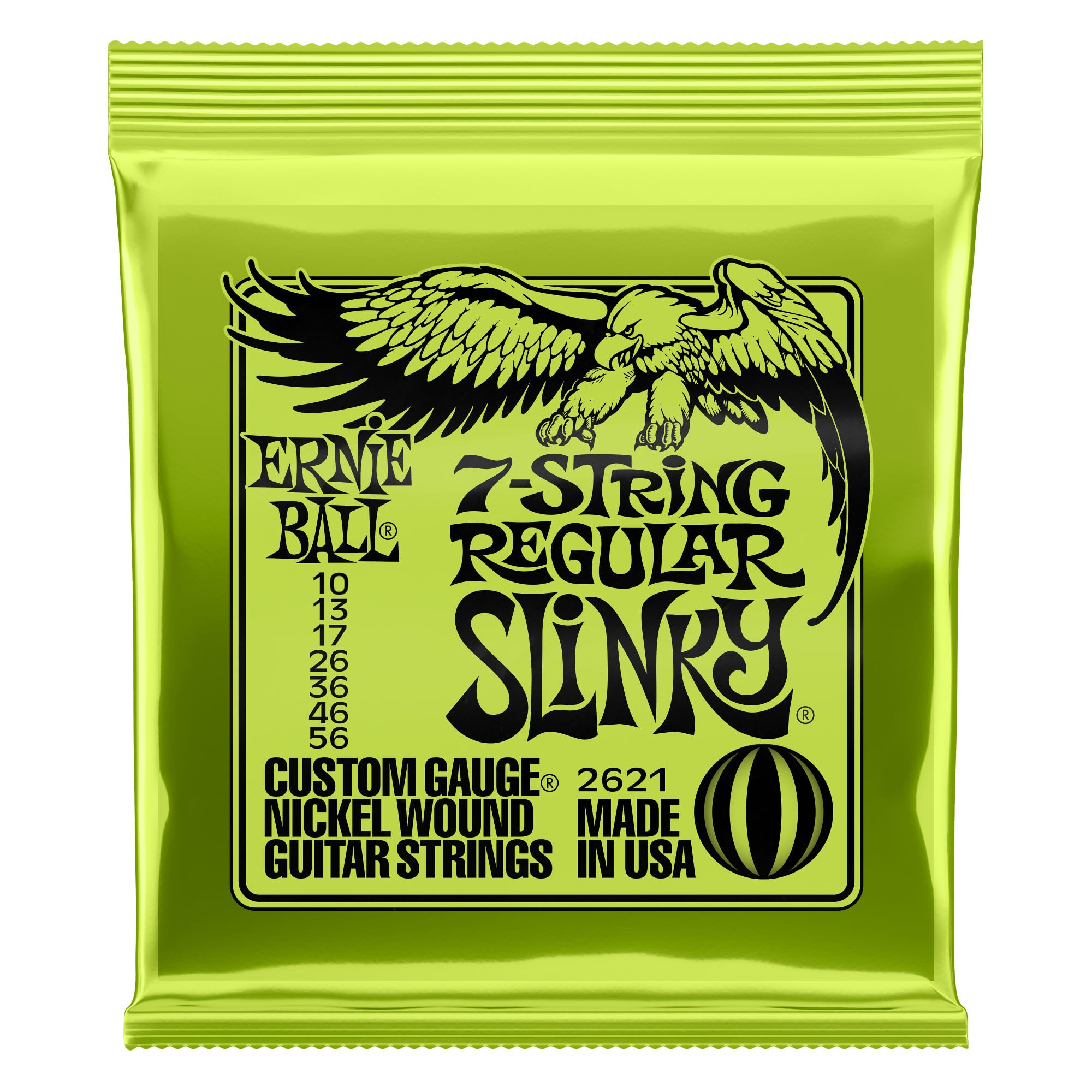
Ernie Ball 7-String Regular Slinky Nickel Wound Electric guitar Strings, 10-56 gauge (P02621)
$12.40
Frequently Asked Questions
- Q: What are the gauge sizes of the Ernie Ball 7-String Regular Slinky strings? A: The Ernie Ball 7-String Regular Slinky strings are available in gauge sizes of .010, .013, .017, .026, .036, .046, and .056.
- Q: What type of music are these guitar strings suitable for? A: These strings are versatile and suitable for various music styles, including rock, metal, and blues, making them a popular choice among guitarists.
- Q: How long do these strings last? A: The longevity of the strings can vary based on playing style and care, but the Element Shield Packaging helps prolong their life by protecting them from moisture and corrosion.
- Q: Are these strings suitable for beginners? A: Yes, these strings are suitable for beginners due to their balanced tone and ease of play, making them a good choice for those learning to play guitar.
- Q: What material are Ernie Ball 7-String Regular Slinky strings made of? A: These strings are made of nickel plated steel wire wound around a hex shaped steel core, while the plain strings are made of specially tempered tin plated high carbon steel.
- Q: Do these strings come with a warranty? A: Ernie Ball does not typically offer a warranty on strings, but they are known for their quality and performance, which are backed by positive user experiences.
- Q: How do I properly install these guitar strings? A: To install the strings, remove the old strings, clean the fretboard, and then thread the new strings through the bridge and tuning pegs, ensuring they are securely wound.
- Q: Can these strings be used on any electric guitar? A: Yes, the Ernie Ball 7-String Regular Slinky strings can be used on any electric guitar that is designed to accommodate 7-string configurations.
- Q: What makes Ernie Ball strings popular among professional musicians? A: Ernie Ball strings are popular for their consistency, tone quality, and the fact that they are used by many famous musicians, which adds to their credibility.
- Q: How should I store these strings when not in use? A: It’s best to store guitar strings in a cool, dry place, ideally in their original packaging, to keep them fresh and prevent oxidation.
